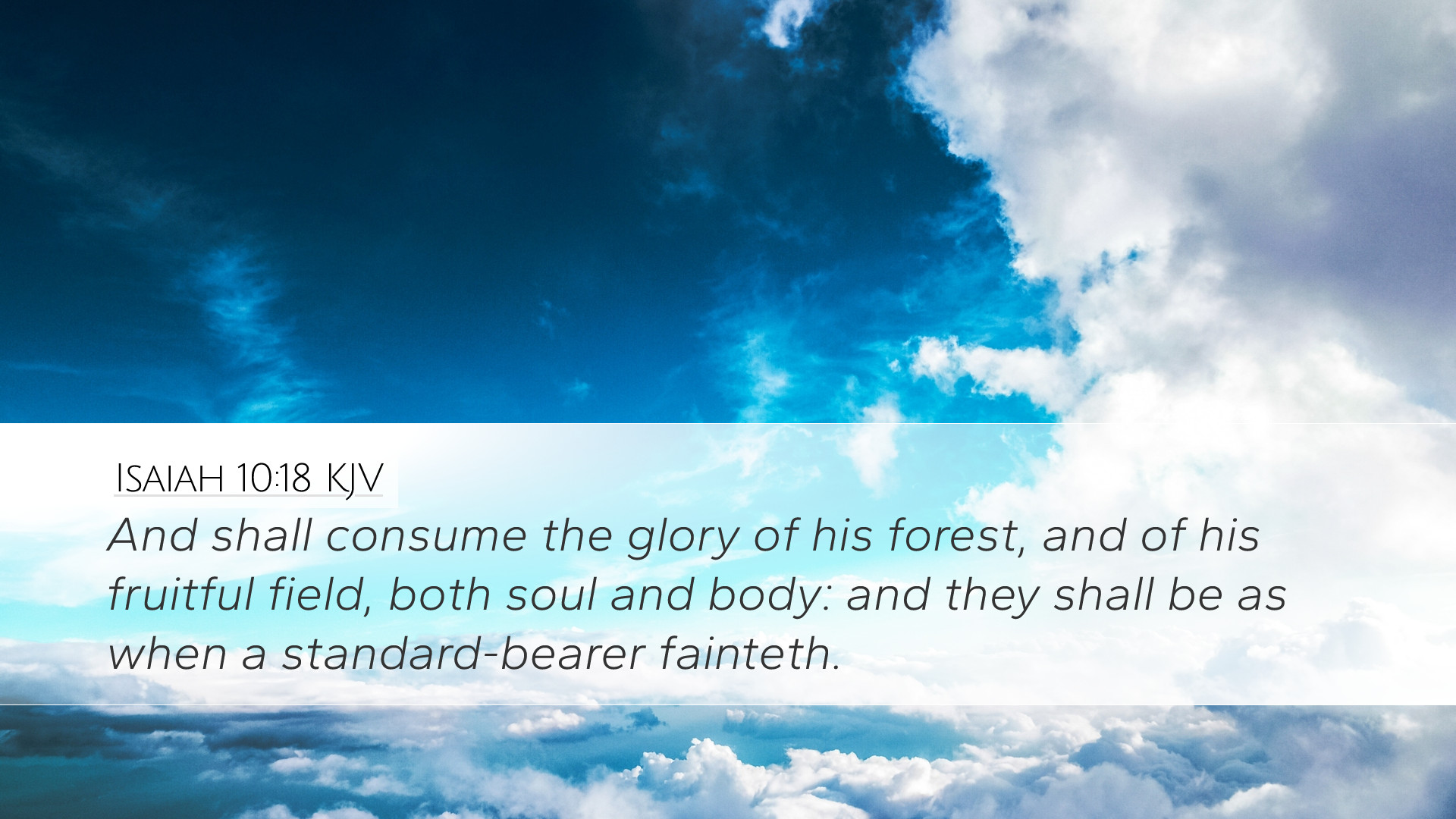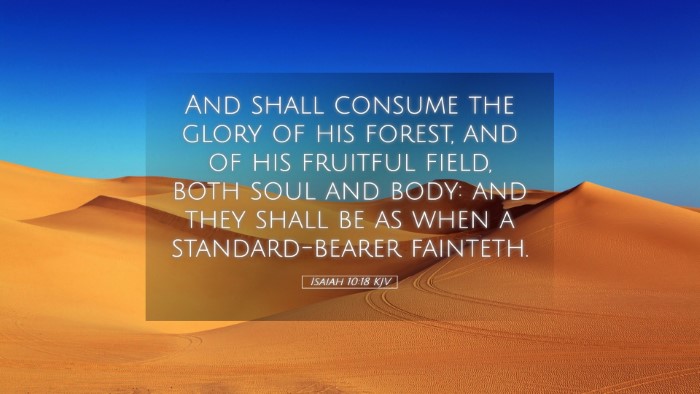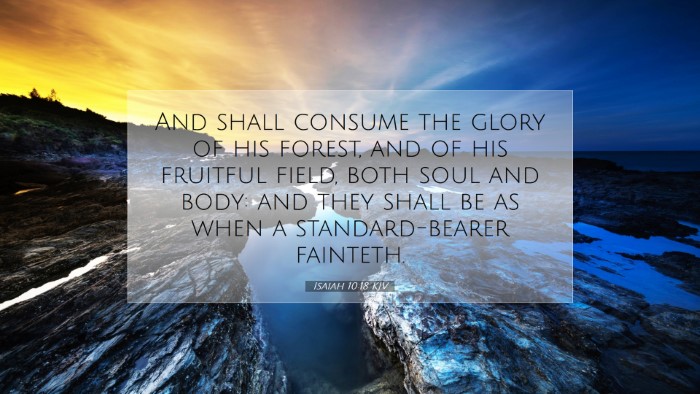Commentary on Isaiah 10:18
Isaiah 10:18 states: "And the glory of his forest, and of his fruitful field, shall be consumed, both soul and body: and they shall be as when a standardbearer fainteth." This verse is a poignant illustration of the coming judgment upon Assyria, depicting the fragility of earthly power and glory.
Contextual Overview
This passage falls within the broader context of God’s pronounced judgment against Assyria, which He used as an instrument of His wrath against Israel. It illustrates the inevitable demise of a force that, while seemingly powerful, is ultimately transient.
The Assyrian Threat
Assyria represents human arrogance and pride, believing its military might would prevail against the purposes of God. Isaiah's prophecy emphasizes how their perceived strength will ultimately lead to their downfall.
Exegesis of Key Terms
- Glory of his forest: This phrase represents not only the natural beauty of the land but symbolizes wealth, power, and pride that come from conquest of territory.
- Fruitful field: It denotes the agricultural prosperity that results from the land being subdued and is a metaphor for the nurturement of power.
- Consumed: A term indicating total destruction. It signifies the way in which God will sweep away the might of Assyria, making it utterly diminished.
- Soul and body: This dual reference indicates totality in destruction, affecting both the physical domain and the spiritual essence of the Assyrians.
- Standardbearer: This metaphor communicates the image of a flag or banner that signifies leadership and victory. A fainting standardbearer symbolizes loss of strength and authority.
Theological Implications
This verse underscores the sovereignty of God over nations and kingdoms. It reveals how God is actively involved in history, executing judgment on behalf of His covenant people and establishing the limits to human pride.
God's Judgment
God's judgment is not arbitrary; it is a holy response to human disobedience and pride. As stated by Matthew Henry, "God’s anger is often a means to secure His people. The very instruments of their chastisement are themselves subject to His will and judgment."
Human Frailty
Albert Barnes notes that the grandeur of the Assyrians will fade like grass before fire. He emphasizes the transience of earthly power, suggesting that what appears invincible may quickly crumble. This calls believers to an attitude of humility and dependence on God.
Practical Application
For pastors, students, and theologians, this verse serves as a reminder of the ultimate accountability of all kingdoms before God. It prompts reflection on the nature of true strength and glory in God’s kingdom, contrasting with worldly accolades.
Encouragement for God’s People
This passage can serve as an encouragement to God’s people to remain steadfast in faith, trusting that God controls the destinies of nations. The seeming triumph of evil is temporary, and God's plan prevails. Adam Clarke emphasizes that divine truth will shine bright despite the current darkness.
Call for Humility
Believers are called to humility in the face of this truth. The fleeting nature of human achievements should lead to reliance on God and the acknowledgment of His eternal sovereignty over all creation.
Conclusion
Isaiah 10:18 stands as a profound reminder of the consequences of pride and the ultimate supremacy of God. As we study this verse, may we grasp the depth of its implications for both our personal faith and the cultural understanding of God’s justice and mercy. The combined insights of public domain commentators heighten our understanding and application of this text, reinforcing the theological truths it embodies.


